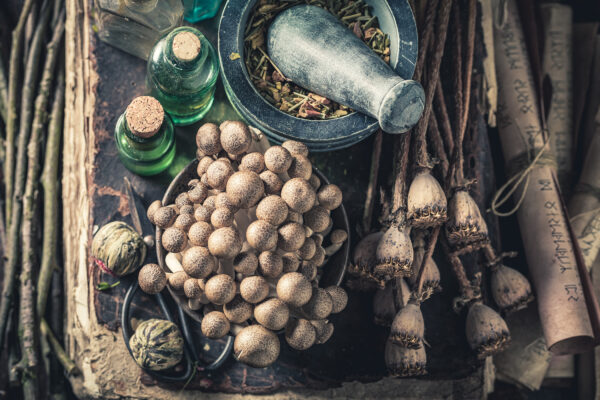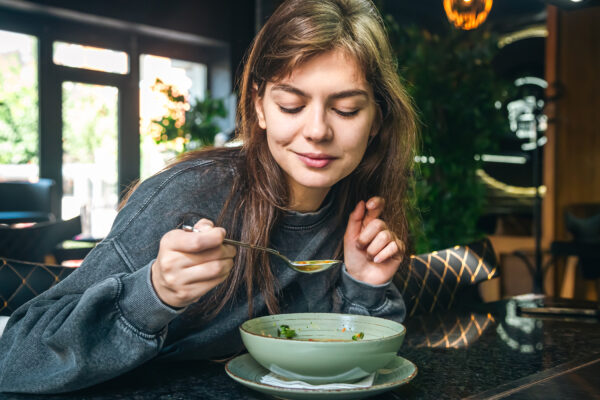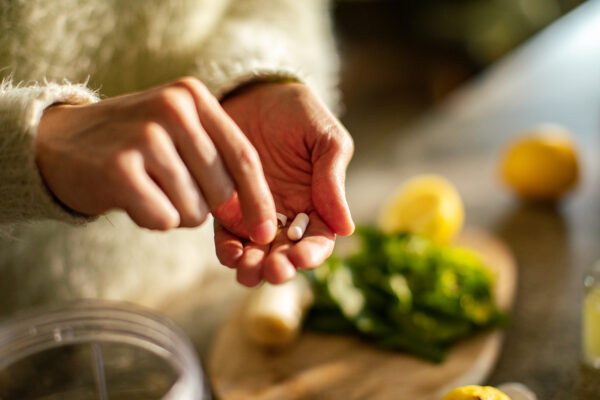The Foods That Support Sleep
A Viable Stress Management Tool
By Megan Horsley and Jamie Bussin
Sleep is the most effective stress-management tool we have. Unfortunately there is a vicious cycle between poor sleep and poor diet in that if we eat poorly, we may not be able to sleep well, and if we don’t sleep well, we will most likely eat poorly. On Episode #151 of THE TONIC Talk Show/Podcast we spoke about how our nutrition can impact the length and quality of our sleep. This is an excerpt of the interview.
I understand the idea that if we don’t eat well, we don’t sleep well; but why is it that if we don’t sleep well, we don’t eat well? If we don’t sleep well we can actually wake up craving more carbohydrates. Typically this is going to be simple carbohydrates, or maybe your first go to in the morning would be a couple of mugs of coffee. These are foods that aren’t going to give you sustained energy for the rest of your day – particularly if you’ve had a poor night’s sleep. As an aside, if we’re not getting enough sleep or experiencing heightened cortisol levels, this leads to reduced insulin levels and we can experience reduced muscle mass. We’ll store more body fat, we’ll experience increased appetite and a slower metabolism. This all relates back to hormone dysregulation.
Let’s discuss the gut-brain axis. This is the connection between our gut and our brain. There’s been a ton of research in recent years about the connection between gut bacteria and our brains. There is communication between those two parts of our body via the vagus nerve. We can make and convert some of our neurotransmitters in our guts if our guts are functioning well. This is extremely important when it comes to our sleep because of melatonin, the hormone that should make us feel sleepy towards the end of the day.
How does the Circadian Rhythm come into play? This refers to the cycle of our cortisol and melatonin throughout the day. So let’s say that in the morning (between 6-8am) cortisol, which is our main stress hormone, is at its highest. This is what helps you get out of bed and makes you feel awake and alert. The cortisol level slowly drops throughout the day; and as it drops off our melatonin levels slowly rise – and this is what makes us feel sleepy. We want to make sure that our gut is supported because we can make melatonin in our gut. This is where prebiotics and probiotics come in handy.
What are the foods that help with the process? First off, tryptophan is an amino acid which is a key component in the creation of melatonin, and which of course can be sourced from eating…turkey. Other sources of tryptophan include hazelnuts, nettle, green onions, tomato and pomegranate. Secondly, there’s GABA which is an inhibitory neurotransmitter – that works to block the excitatory neurotransmitters such as adrenaline, and calm our bodies and can be made in the gut. Sources include sprouted versions of adzuki beans, tomatoes, spinach, oats, barley, wheat, brown and red rice, mushrooms and buckwheat. Valerian tea is also a great source of GABA. I would also recommend peppermint tea to relax the body and it’s great for digestion.




